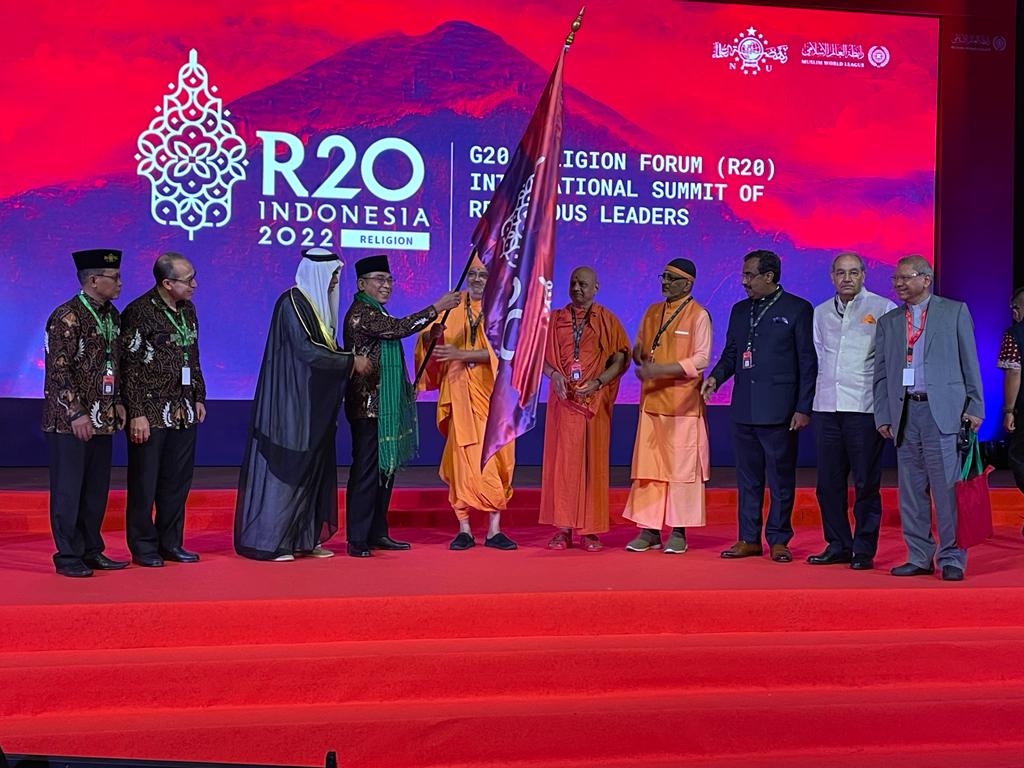Is there space for moderate Islam?

On the eve of the G20 summit in Bali, there was an interesting meeting of interfaith leaders that saw two days of animated discourse on how religion can serve as a solution to a wide range of global issues. Organised by the Muslim World League and the Indonesia-based Nahdlatul Ulama, the event came to be known as the R20, the Religious Forum for the G20. There were as many as 160 interfaith leaders participating, including the RSS leader Ram Madhav and Swami Govind Devgiri of the Ramjanambhumi trust. With India hosting the next G20 summit, the handover of the R20 was given to Ram Madhav and Swami Govindgiri in the hope that the R20 would be incorporated in the G20 proceedings as a matter of course. The two-day meet saw various religious leaders making a bid for moderation and shared values. In his address, Ram Madhav said that “far from the propaganda of persecution, India has always sheltered the persecuted. We have had Muslim leaders as President, Vice President and the Chief Justice.”
The optics of an RSS leader and other Hindu leaders sharing the dais with Muslim leaders made for some reassuring visuals. As Dr Timothy Shah, Director Strategic Initiatives Centre For Shared Civilisational Values said on a lighter note, there is discord in marriages too and you need discourse to smoothen relationships. Similarly, he added that “the entire human family inhabits a single household, and in order to get along one needs to establish new values based on truth, justice and compassion”. Clearly, this was the founding principle behind the meet. It was a well-intentioned beginning, with the Indonesian government participating whole heartedly from the President downwards. It now remains to be seen where India takes the R20 next year.
AAP and the UCC
Why is Arvind Kejriwal raising the issue of the Uniform Civil Code on the eve of the crucial Gujarat and Himachal Pradesh state polls? Of course, he is partly reacting to the Gujarat government’s decision to implement the UCC if voted back to power. What is interesting is that during the Delhi polls he avoided getting into the CAA controversy, but during this round of elections he is raking up the UCC issue. With opinion polls predicting that the AAP is making inroads into the Congress vote bank, Kejriwal now seems to be eyeing the Hindutva vote too. Recall his recent comments about having Lakshmi-Ganesh pictures on currency notes. In fact, pollsters say that Kejriwal’s name has more recall value than the Gujarat CM’s. But then, it’s not Bhupendra Patel that the voters will be voting for in Gujarat, but the Prime Minister himself. Plus, while Kejriwal knows how to whip up the headlines and public attention, he does not have a presence on ground in terms of a cadre and this is where the Congress may score over him.
Campaigning in the Dark
With Rahul Gandhi’s Bharat Jodo Yatra skipping Gujarat, the Congress is running a low profile campaign in the state. Party leaders claim that theirs is a silent campaign, with the Prime Minister also cautioning his party about the door to door campaigning by Congress workers. The party had a three-day brainstorming at Dwarka, after which they came up with an action plan based on the issues raised there. Given that during the last elections the Congress got 77 of the 182 seats in the state, reducing the BJP to double digits, it does have a sizeable presence in the state. And that was a campaign lead by Rahul Gandhi, with Ashok Gehlot by his side.
Today Rahul is busy rebranding himself and Gehlot is busy saving his own seat. Is the Congress ignoring whatever advantage it has by not giving the Gujarat campaign some leadership heft? Why is Rahul skipping Gujarat? Sources say when asked why his yatra was not going through the state, Rahul said the route had not been planned by him but party strategists. Having said this, this is the age of social media and one doesn’t have to be physically present in the state to campaign. Given that the PM has a huge home court advantage here, will the real fight be for the Number 2 position, between Congress and AAP. In which case, whither Opposition unity?

